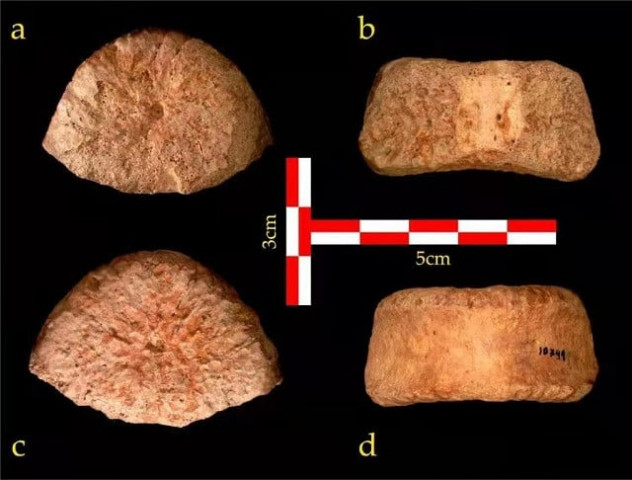Israel discovers 1.5-million-year-old bone of human ancestor
Authorities claim that the finding is the earliest evidence of an ancient human discovered

Israeli researchers have discovered an ancient human vertebra that dates back 1.5 million years ago, the Israel Antiquities Authority (IAA) said on Wednesday, claiming it is the earliest evidence of an ancient human discovered in Israel.
The finding is included in a new study, conducted by Bar Ilan University and the Ono Academic College, both located in central Israel, the University of Tulsa in the United States and the IAA.
The bone was unearthed back in 1966, at the Ubeidiya prehistoric site, on the southern shore of Israel's Sea of Galilee in the Jordan Valley in northeastern Israel.
Recently, the excavations in Ubeidiya resumed, and while reprocessing the collection of animal bones and tools from the site, the researchers encountered the bone, identified as a lumbar vertebra.
Also read: Oldest human burial discovered in Africa
The team found that it belonged to a six to 12-year-old hominid, who was tall for his age and would have grown to a height of more than 180 cm if he had lived to adulthood, the researchers estimated.
According to the study, published in the journal Scientific Reports, human's migration from Africa to the rest of the world was not a one-time event, but occurred in waves.
The first wave reached Georgia in Asia about 1.8 million years ago, and the second reached Ubeidiya site about 1.5 million years ago, according to the researchers.
"These are two different types of humans in terms of appearance and form, stone tool making technique and tradition, and the ecological niche in which they chose to live," the researchers concluded.



















COMMENTS
Comments are moderated and generally will be posted if they are on-topic and not abusive.
For more information, please see our Comments FAQ